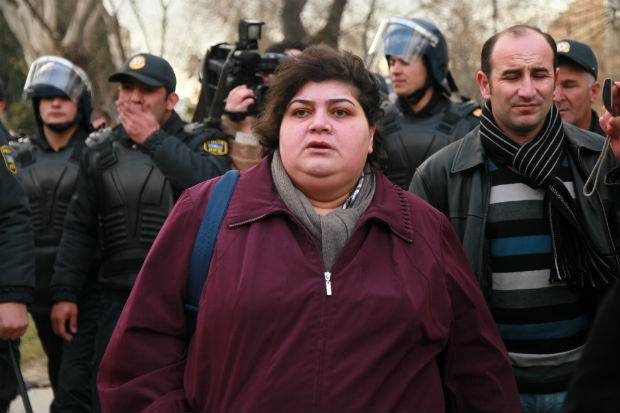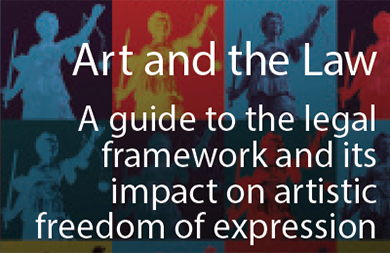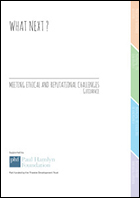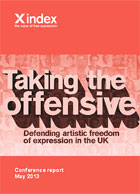Azerbaijan: Free prisoners before Baku Grand Prix race
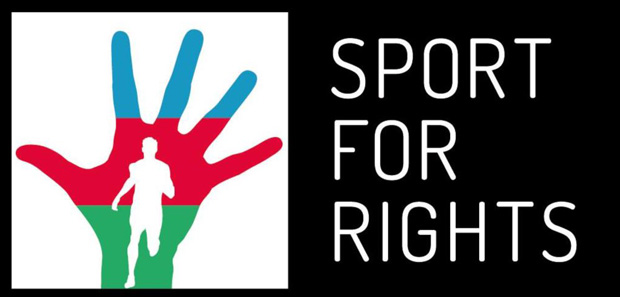
London, 17 May 2016: The Formula One Group leadership should urge the Azerbaijani government to release unjustly imprisoned activists and journalists ahead of the European Grand Prix in Azerbaijan, said the Sport for Rights coalition today.
Azerbaijan will host its first Formula One European Grand Prix race on 17-19 June 2016 in the capital, Baku. The Azerbaijani government has sought to host a number of high-profile sports and other events in recent years, including the inaugural European Games in 2015, while cracking down on human rights activists and critical journalists, as event organisers stayed silent.
“Formula One leadership has a crucial opportunity to press the Azerbaijani government to make concrete steps to improve its human rights record ahead of the Baku Grand Prix”, said Jane Buchanan, associate director for Europe and Central Asia, at Human Rights Watch. “If it remains silent, Formula One risks condoning the government’s efforts to benefit from the prestige of international events, while silencing domestic critics, without consequences”.
Sport for Rights is a coalition of international human rights groups working to draw attention to the dramatic human rights situation in Azerbaijan. The coalition campaigns for the protection of human rights in Azerbaijan and calls on international sporting organisations to press for better human rights safeguards in countries hosting major sporting events.
In recent years, the government of Azerbaijan has undertaken a systematic crackdown on journalists, media outlets, and independent activists. The authorities have arrested or imprisoned dozens on politically motivated charges, including Azerbaijan’s best-known investigative journalist, Khadija Ismayilova, and opposition politician Ilgar Mammadov. The government has also forced numerous independent groups critical of the government to cease operations.
The Formula One Group has explicitly acknowledged its human rights responsibilities, in a policy that states it is “committed to respecting internationally recognised human rights in its operations globally”.
In a letter to Bernard Ecclestone, Chief Executive of Formula One Group, the groups urge Formula One to speak out publicly against the Azerbaijan government’s crackdown on critics and call for the release of those wrongly imprisoned.
“It’s commendable that Formula One group recognises its human rights responsibilities, but the policy has little meaning unless the leadership insists on respect for fundamental human rights protections in the countries that host the Grand Prix” said Rebecca Vincent, coordinator of the Sport for Rights campaign. “If the Azerbaijani government wants the reputational boost of being a global sporting host, it must also recognise its obligations to allow independent media and activists to speak freely, even if it doesn’t always like the message”.
The Azerbaijani government has taken some positive steps in 2016, including releasing at least 16 activists and journalists imprisoned on politically motivated charges. However, many outstanding, extremely serious concerns remain, and the government continues to harass and detain critics, the Sport for Rights coalition said.
In the letter to Formula One Chief Bernie Ecclestone, the coalition called the Formula One Group to take a number of essential steps, including calling on the Azerbaijani authorities to:
- Unconditionally release unjustly imprisoned journalists and activists, including Ismayilova and Mammadov, as well as journalist Seymur Hezi and blogger Ilkin Rustemzade;
- Quash the convictions of all recently released activists and journalists and stop additional prosecutions of independent journalists and activists;
- Cease unjust interference with the operation of independent organisations;
- Ensure journalists attending the Baku Grand Prix can operate without interference while covering a range of topics.
The coalition noted that during the 2015 European Games in Baku, the government prevented numerous leading international journalists from covering the Games, without any penalty or consequences from the Games’ organisers.
“Formula One Group has a chance to support the critical voices remaining in Azerbaijan and ensure the Grand Prix doesn’t repeat the human rights failures of the European Games”, said Emin Huseynov, director of the Institute for Reporters’ Freedom and Safety. “By using its unique position, the Formula One group can ensure that the legacy of the Grand Prix in Azerbaijan is not greater repression”.
For more Human Rights Watch reporting on Azerbaijan, please visit:
https://admin.hrw.org/europe/central-asia/azerbaijan
For more information on Sport for Rights, please visit:
https://www.facebook.com/sport4rights/
For more information, please contact:
For Human Rights Watch, in New York, Jane Buchanan (English, Russian): +1-646-644-4847, or [email protected]. Twitter: @JaneMBuchanan
For Human Rights Watch, in Tbilisi, Giorgi Gogia (English, Georgian, Russian): +995-577-42-12-35 (mobile); or [email protected]. Twitter: @Giorgi_Gogia
For Sport for Rights, in London, Rebecca Vincent (English, Azerbaijani): +44 (0)7583 137751 (mobile); or [email protected]. Twitter: @rebecca_vincent
For the Institute for Reporters’ Freedom and Safety, in Geneva, Emin Huseynov (English, Azerbaijani, Russian): +41 (0) 788788428 (mobile); or [email protected]. Twitter: @EminAzerbaijan
Bernard Ecclestone
Chief Executive
Formula One Group
6 Princes Gate
Knightsbridge
London SW7 1QJ
17 May 2016
Dear Mr Ecclestone,
We, the undersigned members of the Sport for Rights coalition, are writing to you in advance of the Baku European Grand Prix in June to provide details on Azerbaijan’s deeply troubling human rights record and steps that we believe Formula One Group can take to ensure its compliance with its human rights responsibilities.
Sport for Rights is a coalition of international non-governmental organisations working together to promote human rights in Azerbaijan. As Azerbaijan hosts and bids to host international sporting events, with the media spotlight, prestige, and reputational boost that those events can bring to a host country, we are consistently calling on international sporting organisations and others to take meaningful action consistent with their human rights responsibilities as well as use the opportunity of sporting events to press for better human rights protections.
In the run-up to the European Grand Prix in Baku, the Azerbaijani authorities have continued with their human rights crackdown to silence critical voices. We urge you to use the European Grand Prix as an opportunity to speak out against the crackdown and call for the release of jailed journalists and activists.
Formula One Group’s Responsibilities
Formula One Group states that it “is committed to respecting internationally recognised human rights in its operations globally”. The policy also states that Formula One Group will take steps to “understand and monitor through our due diligence processes the potential human rights impacts of our activities”, “identify and assess, by conducting due diligence where appropriate, any actual or potential adverse human rights impacts with which we may be involved”, “consider practical responses to any issues raised as a result of our due diligence”, and “engage in meaningful consultation with relevant stakeholders in relation to any issues raised as a result of our due diligence”. Sport for Rights welcomes this explicit acknowledgement and statement of Formula One Group’s human rights responsibilities.
As you will be aware the United Nations Guiding Principles on Business and Human Rights (Ruggie Principles) and the Organisation for Economic Cooperation and Development (OECD) Guidelines for Multinational Enterprises, issued in 2011 both provide that entities such as Formula One Group bear responsibilities to carry out effective human rights due diligence, to avoid contributing to adverse human rights impacts and to address any that arise.
Grave Human Rights Situation in Azerbaijan
As you may also be aware, in recent years, the government of Azerbaijan has undertaken a dramatic crackdown on journalists, media outlets and civil society leaders and independent organisations. Specifically the authorities have:
- Arrested or imprisoned dozens of human rights defenders, journalists, bloggers, youth activists, politicians and others on politically motivated charges, prompting others to flee the country or go into hiding.
- Frozen the bank accounts and sealed the offices of NGO leaders targeted in the crackdown, forcing these NGOs to stop operations function.
- Launched a spurious, overbroad, two-year criminal investigation implicating foreign donors and dozens of their grantees, forcing the donors to stop their crucial support to independent civil society.
- Adopted legislative amendments and regulations on non-governmental organisations that severely and groundlessly interfere with organisations’ ability to operate, including by restricting access to international funding.
Recently, the authorities have taken some positive, but limited steps. In March 2016, the authorities pardoned or conditionally released at least 16 human rights defenders, activists, and journalists imprisoned on politically motivated charges. In April 2016, the government also finally allowed leading activist, Leyla Yunus, and her husband, Arif Yunus, to travel abroad for medical treatment. The Yunuses had earlier been released on suspended sentences from prison, where their fragile health conditions had deteriorated precipitously since their arrests on politically motivated charges in 2014, charges levied in retaliation for their activism.
However, many outstanding, extremely serious concerns remain, and the crackdown on independent voices has not ended.
The criminal records of the recently released activists have not been expunged and some continue to face restrictions, including travel bans and frozen bank accounts. Other prominent activists and journalists arrested on politically motivated charges remain behind bars. They include:
- Khadija Ismayilova, Azerbaijan’s best known investigative journalist;
- Ilgar Mammadov, opposition REAL movement leader, whose release has been ordered five times by the Council of Europe Committee of Ministers, in order to implement the May 2014 European Court of Human Rights ruling on his case;
- Seymur Hezi, journalist with the opposition daily “Azadliq”;
- Ilkin Rustemzade, blogger and youth activist
On 30 March 2016, authorities detained 79-year-old writer Akram Aylisli at the Baku airport for 12 hours, questioned him, and prevented him from travelling. Authorities later charged him with violently resisting authorities, and he faces up to three years’ imprisonment if convicted.
On 20 April 2016, the Azerbaijani authorities opened a criminal investigation against Meydan TV, a leading independent online broadcast news outlet, only able to operate out of Germany, with correspondents and other staff based in Azerbaijan. The Azerbaijani prosecutor’s office named 15 journalists in the investigation, at least seven of whom remain in the country under travel bans, and face the threat of politically motivated trials and imprisonment.
In addition, the Azerbaijani government has not committed to amending the restrictive legislation regulating NGOs and NGO funding. In December 2015, the Ministry of Justice adopted new regulations granting the ministry nearly uninhibited powers to conduct inspections at non-governmental organisations.
Role of Formula One Group
In light of this deeply troubling human rights situation, we encourage you to use your prominent role within Formula One racing to guarantee a positive legacy from the European Grand Prix in Baku and ensure that the race is not stained by severe violations of press freedom and human rights.
Specifically, in advance of the opening of the Grand Prix in Baku on 17 June 2016, we urge you to:
- Publicly and privately call for the unconditional release of imprisoned journalists and activists, including Khadija Ismayilova, Ilgar Mammadov, Seymur Hezi, Ilkin Rustemzade and others unjustly imprisoned. Such a call would be particularly meaningful from you personally, as the recognised global leader of Formula One racing;
- Call on the authorities to quash the convictions of all freed activists, drop the political prosecutions of independent media outlets, organisations, and individuals, unfreeze civil society organisations’ bank accounts, and allow civil society to function without undue legislative or other restrictions on funding or other activities;
- Urge the authorities to refrain from repression and any further politically motivated arrests and prosecutions of independent journalists and activists;
- Insist that the authorities guarantee that all international and Azerbaijani journalists and bloggers can operate without interference in advance of and during the European Grand Prix in Baku while covering a range of topics. During the 2015 European Games in Baku, the government interfered with the entry of several leading international journalists, including those accredited to cover the games, without penalty or consequences, sending a very troubling signal that such actions are acceptable for hosts of international sporting events.
In addition, we would welcome more information on and strongly encourage Formula One Group to publicly disclose the responsible parties, timeline, terms, specific actions, indicators, and outcomes of its due diligence procedure undertaken in relation to the European Grand Prix in Baku, including information on consultation with stakeholders, in line with the UN Guiding Principles on Business and Human Rights requirements and their call for transparency as an essential element of meaningful due diligence.
Finally, representatives from the Sports for Rights coalition would welcome the opportunity to meet you in the coming weeks to discuss these issues in more detail.
Sincerely,
Rebecca Vincent, Coordinator, Sport for Rights campaign
Katie Morris, Head of Europe and Central Asia Programme, ARTICLE 19
Alice Klein, President, Canadian Journalists for Free Expression
Robert Hårdh, Executive Director, Civil Rights Defenders
Nina Ognianova, Europe and Central Asia Program Coordinator, Committee to Protect
Journalists
Maran Turner, Executive Director, Freedom Now
Mary Lawlor, Executive Director, Front Line Defenders
Danuta Przywara, President of the Board, Helsinki Foundation for Human Rights
Hugh Williamson, Director, Europe and Central Asia Division, Human Rights Watch
Melody Patry, Senior Advocacy Officer, Index on Censorship
Emin Huseynov, Director, Institute for Reporters’ Freedom and Safety
Jesper Højberg, Executive Director, International Media Support
Brigitte Dufour, Director, International Partnership for Human Rights
Petra Havlikova, Project Coordinator of the Women’s Rights Are Human Rights
Programme, NESEHNUTI
Pepijn Gerrits, Executive Director, Netherlands Helsinki Committee
Berit Lindeman, Senior Advisor, Norwegian Helsinki Committee
Karin Karlekar, Director, Free Expression Programs, PEN America
Ann Harrison, Programme Director, Writers in Prison Committee, PEN International
Emma Hughes, Strategy Director, Platform
Ivana Skalova, Head of the East European Program, People in Need
Aleksandra Antonowicz-Cyglicka, Head of Programme, Action for the Global
South, Polish Green Network
Łukasz Biernacki, Managing Director, You Aid Foundation

